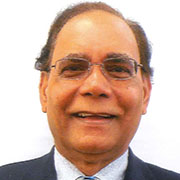Archived: Give Input on the Organization and Administration of NIGMS Undergraduate and Predoctoral Diversity Programs
NIGMS has a longstanding commitment to training the next generation of biomedical scientists and supports training of students from underrepresented (UR) groups through a variety of institutional training and student development programs including Bridges to the Baccalaureate, Bridges to the Doctorate, Research Initiative for Scientific Enhancement, Maximizing Access to Research Careers Undergraduate Student Training in Academic Research, Initiative for Maximizing Student Development, and the Postbaccalaureate Research Education Program. The goal of these programs is to increase the number of students from UR groups who matriculate in and complete Ph.D. degree programs in the biomedical sciences and become leaders in the U.S. research enterprise.
We are seeking input from the biomedical research community, including students, undergraduate faculty, graduate faculty, scientific societies, and academic institutions, as well as from the public, through a Request for Information (RFI) on the organization and administration of NIGMS undergraduate and predoctoral diversity programs.
Specific topics of interest include, but are not limited to, the following areas:
- The potential challenges and opportunities created by changing NIGMS R25 programs to NRSA training (T) grant activity codes, and strategies for overcoming any potential challenges
- The potential advantages or disadvantages of having a single, unified NIGMS-funded undergraduate or predoctoral diversity program vs. multiple NIGMS-funded diversity programs at a given institution
- Strategies for building effective intra- and inter-institutional networks that minimize unnecessary duplication, leverage existing resources and create synergies to more efficiently and effectively promote the development of a well-trained and diverse biomedical research workforce
- Any other comments or recommendations regarding NIGMS programs that support the training of students from UR groups
Responses can be submitted via an online form and can be anonymous. The due date for providing input is October 31, 2017.

